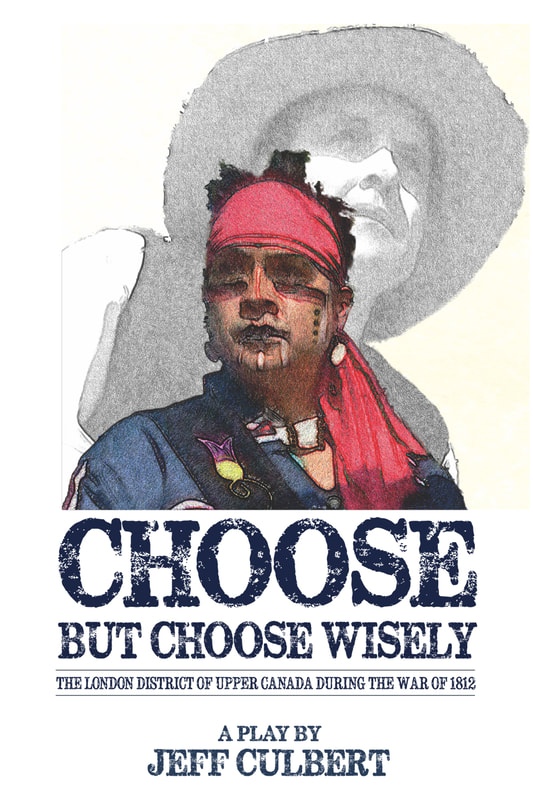Choose, But Choose Wisely
CHOOSE, BUT CHOOSE WISELY: The London District of Upper Canada during the War of 1812
When the Americans declared war in 1812, the inhabitants of Upper Canada were given a choice by General Hull, the commander of Fort Detroit. They could either allow the American army to take control of the region or face a war of extermination. This play follows the reactions of five neighbours living near the forks of the Thames River (Askunissippi) in the London District: a Chippewa scout, a captain in the British militia, an American sympathizer and two Quaker pacifists.
When the Americans declared war in 1812, the inhabitants of Upper Canada were given a choice by General Hull, the commander of Fort Detroit. They could either allow the American army to take control of the region or face a war of extermination. This play follows the reactions of five neighbours living near the forks of the Thames River (Askunissippi) in the London District: a Chippewa scout, a captain in the British militia, an American sympathizer and two Quaker pacifists.
